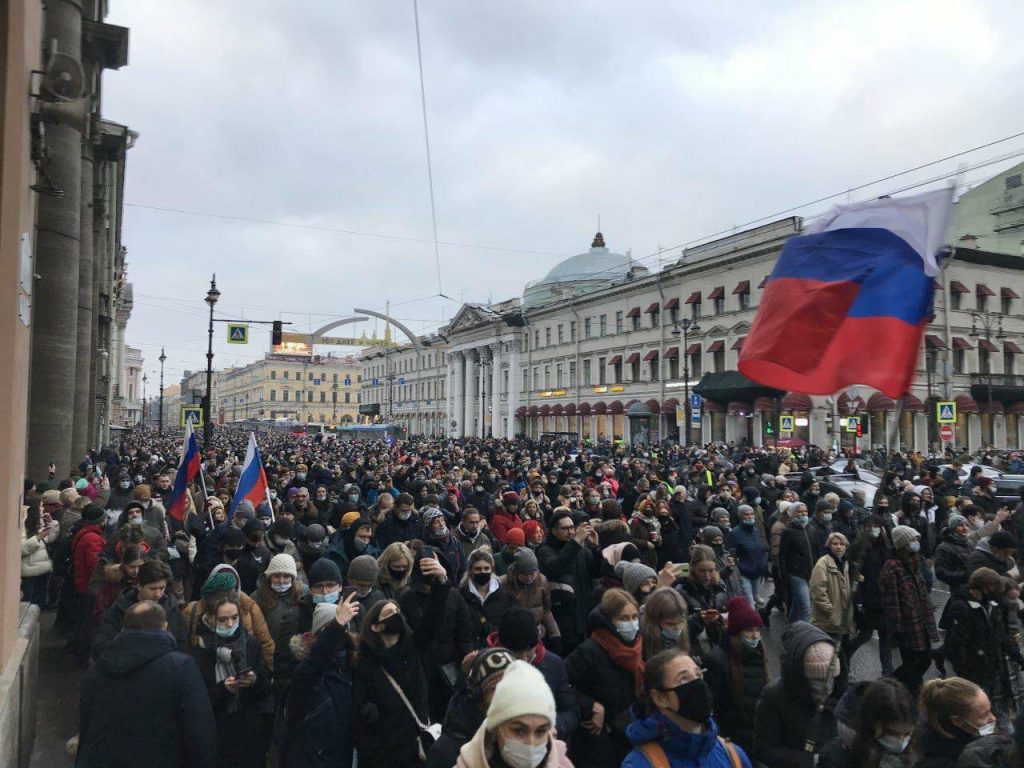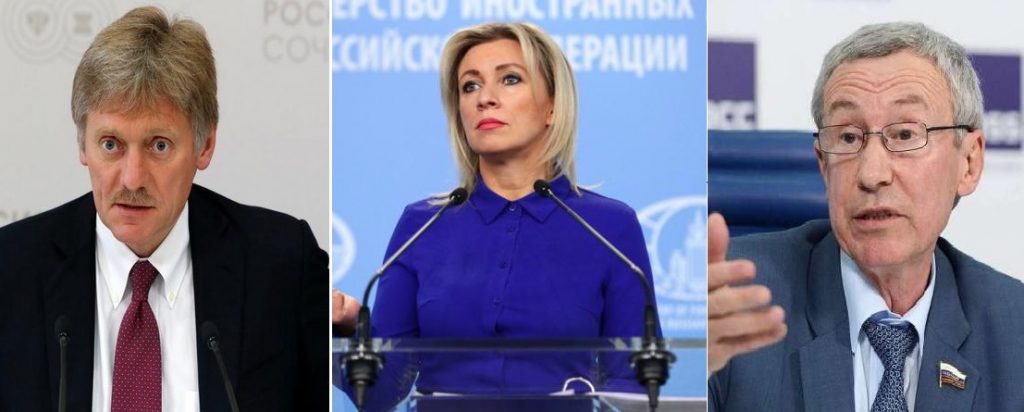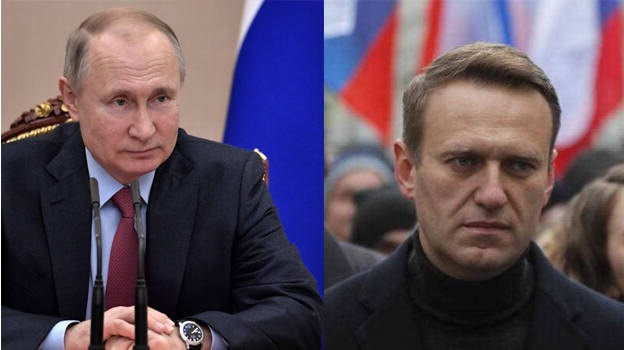
- Protests were held in several cities of Russia against the arrest of opposition leader Alexei Navalny
- Navalny has accused Putin and the Kremlin elite of large scale corruption for amassing wealth and a huge palace
- Pro-US English media outlets estimated that around 20,000 people protested in Moscow and more than 10,000 in Saint Petersburg
- US embassy in Russia had posted on its website information about the time and location of the protests
- Putin’s press secretary Dmitry Peskov Foreign Ministry Spokeswoman Maria Zakharova have accused the U.S. embassy of interfering in Russia’s domestic affairs
- Federation Council for the Protection of State Sovereignty and Prevention of Interference believes that ‘foreign countries’ specialists’ are involved in organizing unauthorized rallies in Russia
Russia has accused the United States of interfering in it’s domestic affairs with several senators accusing foreign entities and countries for being behind the protests. The Kremlin also sought to downplay the scale of the weekend’s protests where thousands rallied in support of jailed opposition politician Alexei Navalny.
Navalny, Putin’s most prominent critic, was arrested on returning to Moscow last weekend following months of treatment in Germany for a near-fatal poisoning with a Soviet-designed Novichok nerve agent.
The Kremlin termed Saturday’s protests as ‘unauthorized’, which were organised in more than 100 cities. More than 3,500 demonstrators were detained in protests across the country on Saturday, with several injured in clashes with police in Moscow, following Navalny’s call to rally against President Vladimir Putin’s 20-year rule.
Around 20,000 people protested in Moscow and more than 10,000 in Saint Petersburg, as per estimates in pro-US English media outlets. Small rallies were also held in numerous countries including France and Lithuania. However, official figures from the Russian Interior Ministry said that only around 4,000 people had gathered in central Moscow and protests in other cities saw merely few hundreds.
OVD-Info, an independent organization that monitors arrests, put the nationwide tally of detentions at 3,711, including 1,455 in Moscow. Among those detained in the Russian capital were Alexei Navalny’s wife Yulia, who was later released, as well as his senior aide Lyubov Sobol. On the eve of the rallies, dozens of Navalny’s local organizers across the country had already been jailed or fined.
On January 23, 2021 the US State Department in a statement condemned the use of ‘harsh tactics’ against protesters and journalists this weekend in cities throughout Russia. “Continued efforts to suppress Russians’ rights to peaceful assembly and freedom of expression, the arrest of opposition figure Aleksey Navalny, and the crackdown on protests that followed are troubling indications of further restrictions on civil society and fundamental freedoms”, it said.
The US State Dept. called on Russian authorities to release all those detained and demanded unconditional release of Aleksey Navalny. It also urged Russia to fully cooperate with the international community’s investigation.
EU foreign policy chief Josep Borrell has said the bloc would discuss “next steps” on Monday.
Russia Accuses US of Meddling in its affairs

Putin’s press secretary Dmitry Peskov on Sunday accused the U.S. embassy of interfering in Russia’s domestic affairs after the mission distributed a “demonstration alert” to U.S. citizens in Russia recommending they avoid protests. Peskov told a state TV channel that “they are absolutely an interference in our domestic affairs.”
He further slammed publications of the US embassy in Moscow about unauthorized rallies in Russia as indirect meddling with Russia’s domestic affairs and support to unlawful actions. “Obviously, these are misleading publications. And, naturally, they are an absolute interference into our domestic affairs,” he said in an interview to the Rossiya-1 television channel.
He noted that should Russia’s embassy to the United States venture to comment on the riots in the United States, “and they continue there,” this way, “It would have caused certain discomfort in Washington”, he said.
The Russian foreign ministry said earlier that the fact that the US embassy in Russia had posted on its website information about the time and location of unauthorized events was far beyond the limits of concern for American citizens in Russia.
Russian Foreign Ministry Spokeswoman Maria Zakharova while speaking to TASS on Saturday said that US diplomats will have to give explanations at the Russian Foreign Ministry after the US embassy in Moscow published “the itineraries of protests” in the Russian cities.
“Yesterday the US embassy in Moscow published ‘the protest routes’ in Russian cities and injected the information about a ‘march on the Kremlin’. What was that: a setup or an instruction? Even the organizers had not announced these plans,” she said. “The US diplomats will have to provide explanations at the Russian Foreign Ministry,” she added.
“We can imagine what could have happened if Russia’s embassy in Washington had published a map of protest routes with destinations, for example at the Capitol. This kind of orienteering should have ended up with a global hysteria of American politicians, including Russophobic slogans, the threats of sanctions and the expulsion of Russian diplomats,” Zakharova added.
Chairman of Federation Council for the Protection of State Sovereignty and Prevention of Interference Andrey Klimov said that Russia has grounds to believe that ‘foreign countries’ specialists’ are involved in organizing unauthorized rallies in Russia, the commission’s told the Vesti Nedeli news program on Rossiya-1 TV channel on Sunday.
“The commission [of the Federation Council] has reason to believe that the actions of foreign states are clearly behind all these events and all this is happening with the foreign specialists’ assistance,” he said. In order to attract Russians to participate in unauthorized events a focus was made on foreign digital platforms and messengers, Klimov noted. Furthermore, some underage persons were encouraged to participate. “This is an illegal act itself,” he said.
Head of the Russian State Duma (lower house of parliament) Commission on Foreign Interference in Russia’s Internal Affairs Vasily Piskarev said earlier that the commission had launched an effort on identifying those who are behind the calls for participation in unauthorized rallies on January 23, distributed on social networks. The commission is “ready to promptly examine the files about the possible involvement of foreign forces in disseminating calls to participate in unauthorized events in a number of social networks next weekend,” Piskarev said.
Navalny’s allegations against Putin

In a ‘video investigation’ released after Navalny’s arrest, he is seen accusing President Vladimir Putin of using fraudulently obtained funds to build a $1.35 billion “palace” on Russia’s Black Sea coast. The video has been viewed 85 million times since it was released on 19th Jan.
Navalny recorded the video before his return to Russia. The video states that over the past 15 years, Putin has indulged in the biggest corruption scam in Russia’s history where he has used illegally diverted funds to build the ‘most expensive’ palace in the world. Navalny was detained at the airport, where he arrived after 5 months of treatment in Germany after Putin tried to kill him, alleges the video.
The 1 hour 52 minute video (below) gives a detailed report of the alleged nexus between Putin and other agencies in siphoning off the money for his palace. The investigation also probes into the wealth of the Kremlin elite.
As the video went viral on social media, many began to organise protests in several cities. The Kremlin has dismissed the video as “nonsense”. Clashes broke out in Moscow, St Petersburg, Vladivostok and other cities on Saturday and Sunday as some protesters threw snowballs and traded blows with riot police in body armour and helmets. Dozens of people were injured.
Videos on social media show protesters attacking police and smashing the glass of cars that belong to the security forces. Navalny’s supporters have vowed to continue protests this week too.
Navalny, who rose to prominence a decade ago, accuses the FSB security agency of seeking to poison him on Putin’s orders. He is the target of several criminal probes and supporters fear authorities are planning to sentence him to a long prison term.
